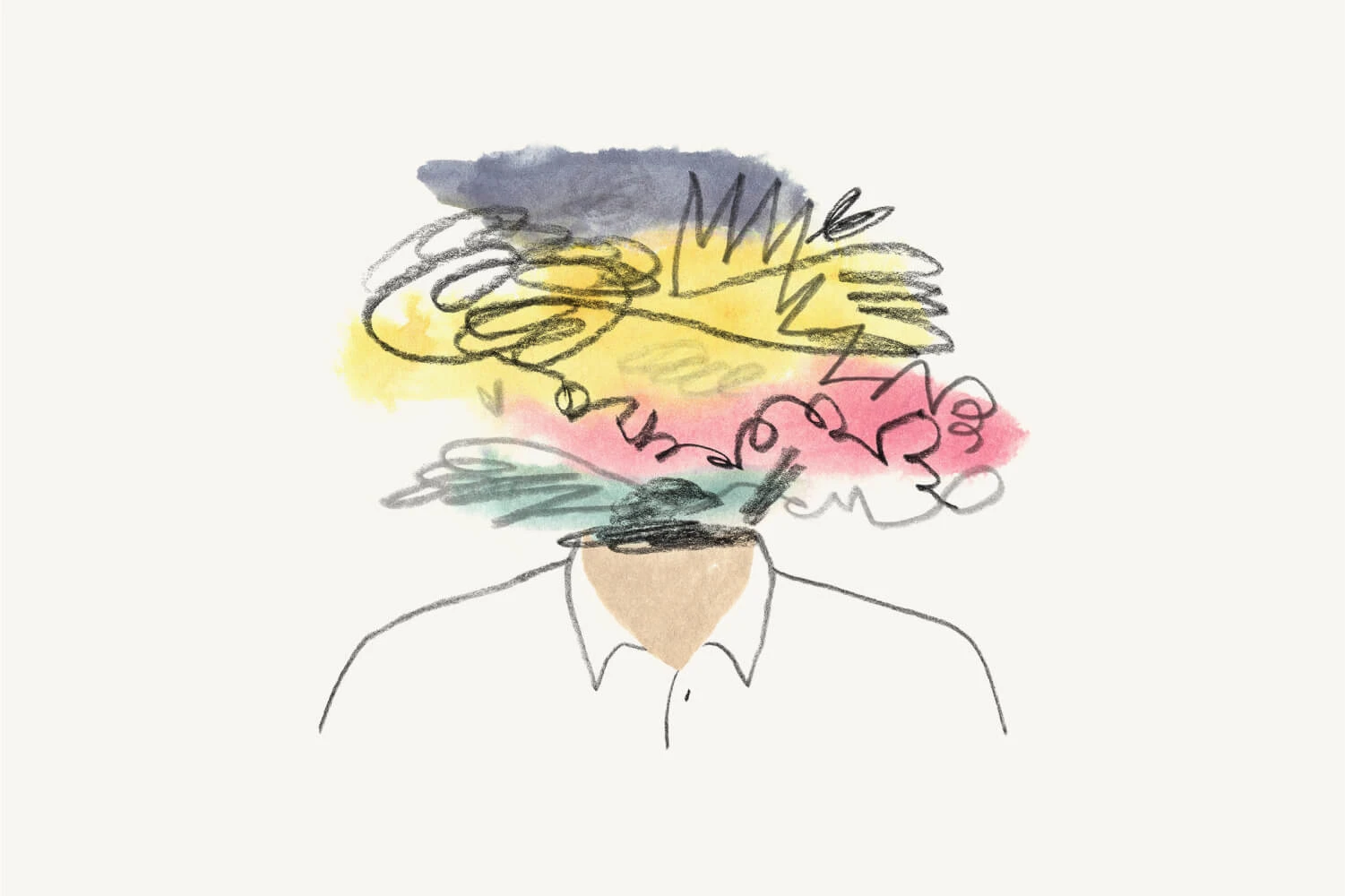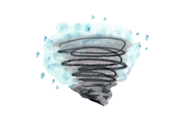The increase in conversations about psychology, therapy, and mental health on social media—particularly on TikTok and Instagram Stories and Reels—can be beneficial for normalizing conversation on mental health and improving our collective wellbeing.
One downside, however, is that many people are casually throwing around and misusing mental health and therapy terms and buzzwords in some of those conversations and funny social media memes.
Many people are casually throwing around and misusing mental health and therapy terms and buzzwords.
It can be challenging to discern the sometimes nuanced and subtle differences in their meanings and usage.
To help demystify the pop psychology jargon and make sure things are clearer for everyone, here are the definitions and explanations of the therapy terms most often misunderstood.

Psychology words frequently misused on social media
There are some—but, by no means, not all—of the potentially confusing therapy and mental health terms you may hear people use in conversation and online videos and amusing Instagram memes.
1. Trauma
According to the American Psychological Association (APA) Diagnostic and Statistical Manual, Fifth Edition (DSM-5), trauma is defined as “exposure to actual or threatened death, serious injury, or sexual violence.”
Exposure can be in the form of the trauma actually happening to you, witnessing the trauma, learning that the trauma occurred to someone close to you, or repeatedly being exposed to details of the trauma.
This definition of trauma is narrower than it had previously been and it requires more than just a stressful event to qualify.
Previous versions of the DSM refer to exposure to a traumatic event, whereas now trauma involves an exposure to actual or threatened death, serious injury, or sexual violence.
There can be some surprising symptoms of trauma that it's good to be aware of.
2. Trigger
Triggers are sensory experiences that evoke memories of a past traumatic event. They can be external or internal, and can cause changes in mood or behavior, or can prompt symptoms related to stress, anxiety, or PTSD.
Sometimes, triggers can cause a person to have flashbacks to their trauma that are so intense that they temporarily can’t function in their environment.
For example, the smell of a campfire could bring someone back to the night their house burned down, and they could relive the fear they had during that event.
3. Stressor
Stressors are like triggers, and the words are often used interchangeably, but they’re not exactly the same thing.
While triggers remind someone directly of a previous trauma, stressors are more general sensory experiences that set off the body’s stress response. Like triggers, stressors can be internal or external.
For example, for a war veteran, a trigger could be the sound of a gunshot because it causes flashbacks to a specific combat memory, whereas a stressor may be any loud noise that causes internal or external pressure, as it’s reminiscent of a typical war zone, and therefore causes a general feeling of anxiety.
4. Addiction
Addiction is a term that is commonly used and generally understood. The American Society of Addiction Medicine defines addiction as “a treatable, chronic medical disease involving complex interactions among brain circuits, genetics, the environment, and an individual’s life experiences.”
Individuals suffering from addiction cannot control the compulsion to ingest a specific substance or perform a certain behavior, even if they know the results are harmful.
Addiction is equal parts biological, psychological, and social, and means that an individual may find it difficult to stop using a drug, even if it is negatively affecting their daily life.

5. Dependence
Dependence and addiction often appear together.
Addiction can be both mental and physical, whereas dependence refers to the body requiring a specific amount of a specific substance—even one that’s been prescribed.
Dependence does not mean that someone is suffering from addiction, but people impacted by addiction are also considered to be impacted by dependence.
Some people who have been addicted to alcohol for a long time will have physical tremors, called DTs, if they don’t have alcohol in their systems. This is because their bodies have developed a dependence.
While the strong emotional desire to drink alcohol is a symptom of addiction, physically shaking while in alcohol withdrawal is one symptom of dependence.
6. Codependence
Codependency refers to a relationship where one person sacrifices their own wants and needs (known as a codependent) in order to fulfill the wants and needs of their partner; and often this partner will become dependent on the codependent.
Codependency usually stems from individuals with a dysfunctional family, such as one in which a parent suffered from addiction or a chronic illness.
These codependent behaviors are learned by having to constantly focus on one family member while growing up.
Codependent relationships are one-sided, and often the codependent’s partner is suffering from addiction.
So, while codependency can be related to addiction, it really refers to the relationship between two people.

7. Stigma
The word stigma is rooted in a physical mark and is now used to describe any characteristic or trait—usually outside of one’s control—that is also perceived as a sign of weakness or inferiority in the bearer.
Stigmas surrounding mental health are, sadly, very common.
Stigmas can lead to negative stereotyping, discrimination, and bullying.
For our purposes, stigma in the mental health space refers to the idea that those with mental illnesses are flawed or weak when in actuality no evidence exists to support this belief.
Stigmas can lead to negative stereotyping, discrimination, and bullying.
Stigma doesn’t have to come from others or societal pressure—people can internalize stigmas and have these negative thoughts about themselves too.
However, mental illnesses are just that: illnesses.
Just as there's no shame in having a physical illness, there is no shame in having a mental illness.
8. Disease
A disease has a known, definite cause and affects a specific function or part of the body with common, specific symptoms.
This does not mean all diseases have cures, but their causes are understood and their effects consistent across individuals.
If a disease has a group of symptoms associated with it, that group of symptoms is often referred to as a syndrome.
Somewhat confusingly, a syndrome can also be a group of symptoms that has no known exact cause or disease attached to it.
That said, using the term “disease” to describe a mental illness is often inaccurate.
There are no objective lab tests that can accurately diagnose mental disorders, so referring to psychiatric ailments as diseases is not widely supported.

9. Disorder
Disorder is commonly used as a synonym for disease, but there are a few differences between the two.
Similar to a disease, a disorder refers to a lack of or disturbance in normal functioning in part of the body.
What makes a disorder different from a disease is that its biological causes are not completely known, and its symptoms may differ among individuals and often overlap with symptoms of other conditions.
Not that disorders are any less legitimate than diseases.
Disorders are just as real, just as damaging, and can be just as treatable as diseases. They are just not as widely understood within the medical community.
Let's normalize mental health conversations
Regular discussions about therapy and mental health are essential to remove the stigma from discussing our emotional state of mind with friends, family, and colleagues.
Taking care of our health means making sure to prioritize our self-care routines.
We hope this article helped illuminate and create a better understanding of some of the therapy and psychology words you may encounter in funny mental health memes on Instagram and TikTok or in conversations with friends and family.
How to find a therapist to speak with
The Monarch Directory by SimplePractice includes profiles of over 120,000 mental health professionals.
You can view licensed therapists near you and choose to filter them by specialties and types of therapy they practice. Many offer online booking and free 15-minute consultations.

Additionally, you can choose to browse counselors by health insurance provider to find a therapist who accepts your insurance.
READ NEXT: 5 Surprising Symptoms of Trauma You Might Not Realize
Need to find a therapist near you? Check out the Monarch Directory by SimplePractice to find licensed mental health therapists with availability and online booking.
If you found this article helpful, consider sharing it on Instagram,Twitter,Facebook, and/or LinkedIn, or emailing it to any friends or family members who might appreciate learning more about prioritizing mental health. Sharing is caring!
American Psychiatric Association. (2013). Diagnostic and statistical manual of mental disorders (5th ed.). https://doi.org/10.1176/appi.books.9780890425596
ASAM Definition of Addiction. (2021). Retrieved from Asam.org website: https://www.asam.org/Quality-Science/definition-of-addiction
Mayo Clinic. (2017). Mental health: Overcoming the stigma of mental illness. https://www.mayoclinic.org/diseases-conditions/mental-illness/in-depth/mental-health/art-20046477
Mental Health America. (2021). Codependency. Retrieved from https://www.mhanational.org/co-dependency
Nasrallah, H. A. (2018, April 16). Diagnosis 2.0: Are mental illnesses diseases, disorders, or syndromes? Retrieved from https://www.mdedge.com/psychiatry/article/65290/diagnosis-20-are-mental-illnesses-diseases-disorders-or-syndromes?sso=true
National Institute on Drug Abuse. (2020, December 2). Is there a difference between physical dependence and addiction? Retrieved from https://www.drugabuse.gov/publications/principles-drug-addiction-treatment-research-based-guide-third-edition/frequently-asked-questions/there-difference-between-physical-dependence-addiction
Oken, B. S., Chamine, I., & Wakeland, W. (2015). A systems approach to stress, stressors and resilience in humans. Behavioural Brain Research, 282, 144–154. https://doi.org/10.1016/j.bbr.2014.12.047
Psychiatry.org. (2017). Taming triggers for better mental health. Retrieved from https://www.psychiatry.org/news-room/apa-blogs/apa-blog/2017/03/taming-triggers-for-better-mental-health





